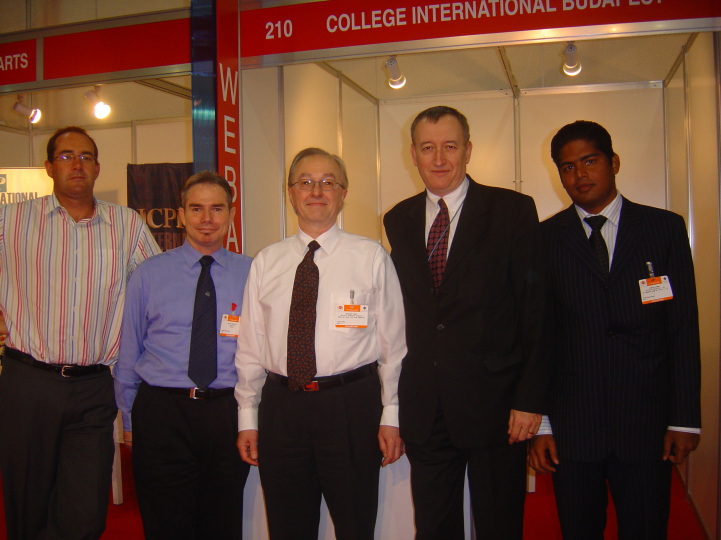 Business & Finance Club - Manama : Bahrain is determined to bridge the gap between its education system and the requirements of the labour market, said a top Economic Development Board (EDB) official.
Most of the country's education projects aim to close the gap and, although it has not been achieved, the country is heading in the right direction, said EDB chief executive Shaikh Mohammed bin Essa Al Khalifa yesterday.
He said one of Bahrain's goals was to make a better connection between elementary, secondary and tertiary education and the labour market.
'Our main goal is to make sure the graduates of our education system meet the needs and requirements of the labour market,' said Shaikh Mohammed at a Press conference held on the sidelines of a major education conference, which concludes at the Shaikh Isa Cultural Centre in Juffair today.
Curricula
'We are looking at how to give people skills and be adaptable to the changing needs of the labour market.
'It takes time, you don't play around with education, you have to be sure.'
Shaikh Mohammed said Bahrain aimed to have a knowledge-based economy, which meant having a population that had skills and knowledge that was adaptable to the needs of the workplace.
On school curricula, Shaikh Mohammed said the focus should be more on skills than knowledge and information but that did not necessarily mean changing them as much as the method of teaching.
Speaking about education reform, he said the government's main focus was on public sector education, although it had set standards that also related to the private sector.
'Sixty per cent to 70 per cent of Bahrainis go to government schools and this is why a lot of the emphasis is on government schools, this is the first phase,' he said.
'In the coming year we will evaluate private schools as well, but the initial focus is on government schools.'
Shaikh Mohammed agreed that there had been a lack of research and development in education in Bahrain, but this was being tackled in various ways.
He said there was an existing law that required higher education institutes to dedicate three per cent of revenues to research, but this legislation needed to be reactivated.
In addition, Bahrain University's five-year plan had set specific targets on how to encourage more research in the education field.
The university had also signed a memorandum of understanding (MoU) with Stanford University to help it conduct research and development.
'Any developing economy today that wants to be prosperous must address the issue of how to use research and development for education,' he added.
On having a global index for education, Shaikh Mohammed said Bahrain supported the move, but the main focus should be on outcome.
Meanwhile, EDB chief operating officer Kamal Ahmed said Bahrain was making good progress in addressing the gap between education and the needs of workplace.
He said many sectors now employed a high percentage of Bahrainis and unemployment was under 4 per cent.
However, he said looking to the future the workforce was set to increase by 4 per cent every year and more than 100,000 jobs will be needed in the next decade or two and Bahrain was looking to create quality positions.
He said Bahrain was tackling the issue by ensuring teachers and the curriculum and employers are engaged in the process and that there was a shift in culture.
'We need to raise awareness that vocational education is as good as university education,' said Ahmed.
'We are working on all these aspects, but no one can ever say they have done it.'
The Press conference was held on the sidelines of the Education Project 2010, an annual international forum launched last year with the objective to raise the standards of global education, share best practices and suggest practical solutions.
The event, which opened on Friday, is organised by the EDB under the patronage of His Royal Highness Prince Salman bin Hamad Al Khalifa, Crown Prince, Deputy Supreme Commander and EDB chairman.
This year's event is being held under the theme Transforming Outcomes and Developing New Skills for All Students.
Experts, academics and key decision makers in the education field are among more than 500 participants from 50 countries attending the forum.
Others at the conference include 10 education ministers and five under-secretaries from around Arab world and India.
The Education Project comprises workshops, plenary sessions, panel discussions and an open debate among education experts and government leaders from diverse cultures and backgrounds. |